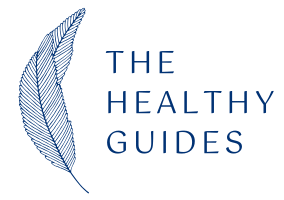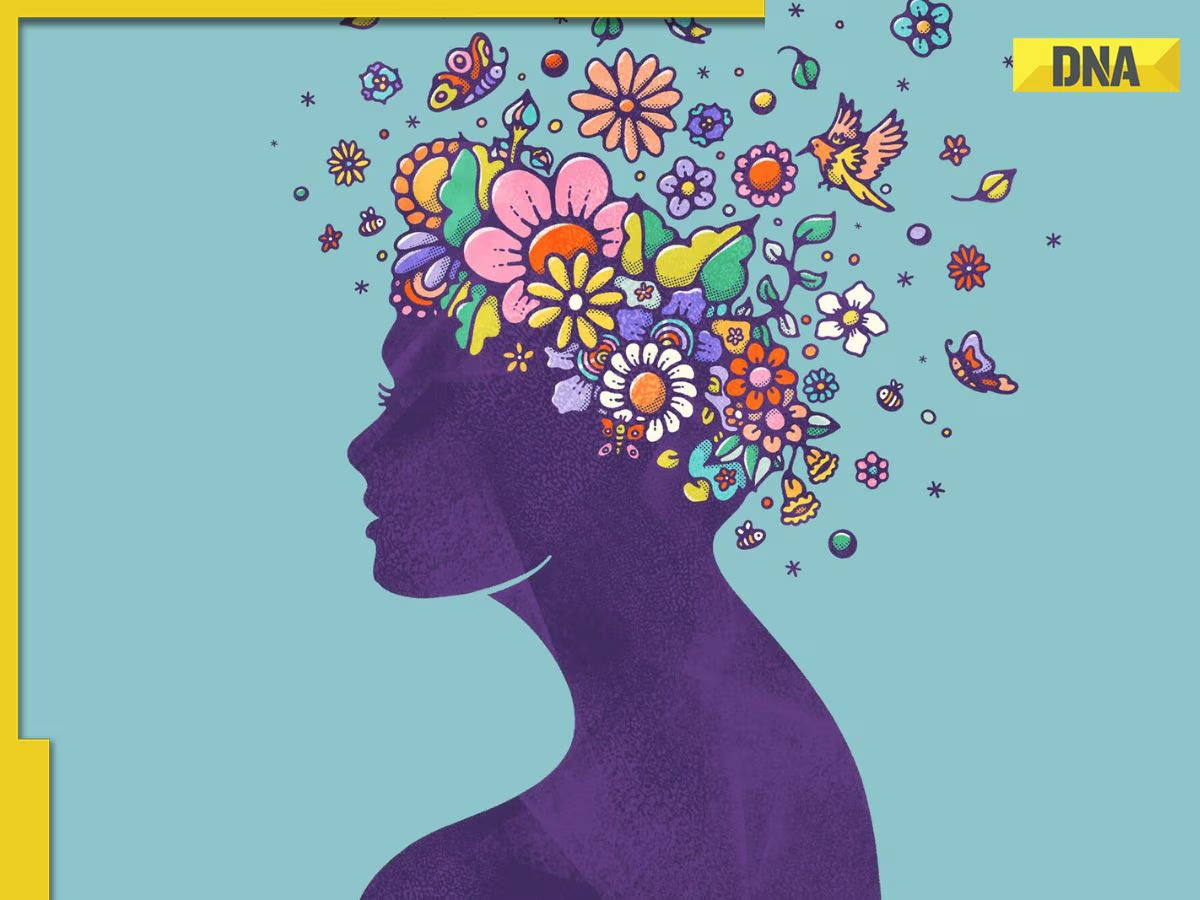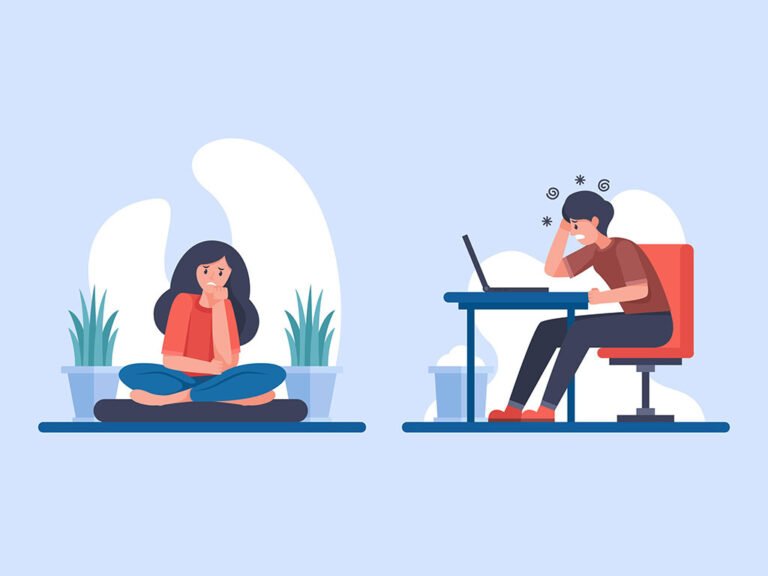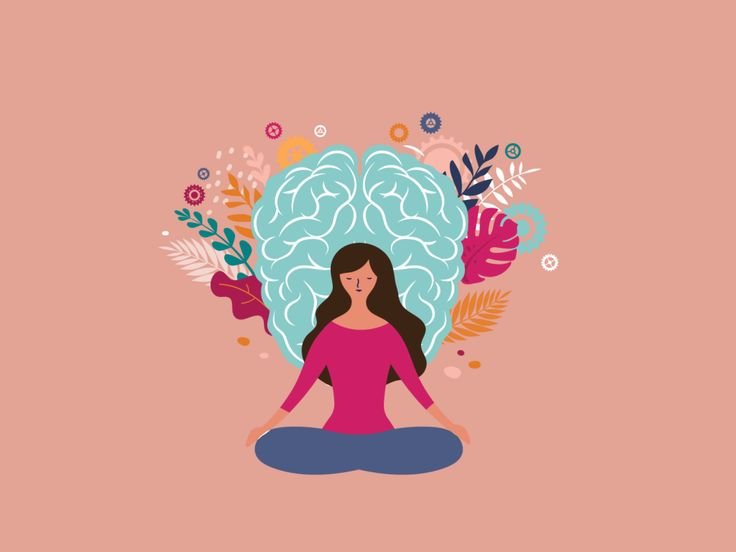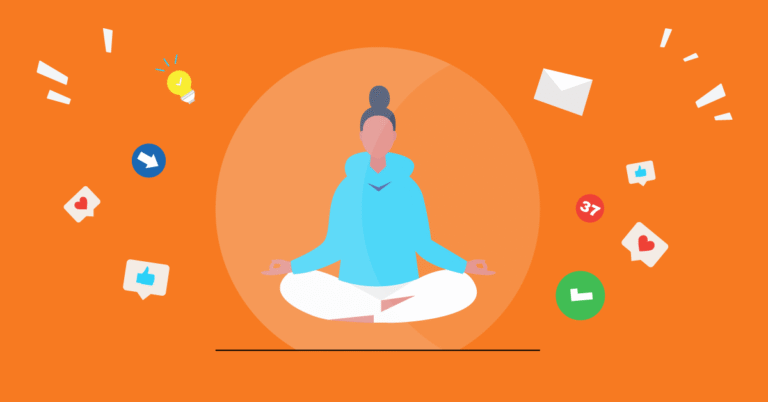Your mental health affects everything—how you think, feel, make decisions, handle relationships, manage stress, and even how you wake up in the morning (or hit snooze five times). That’s why mental health support is so important—it helps you build the tools and mindset to handle life’s ups, downs, and sideways detours.
Good mental health isn’t about being happy 24/7. It’s about feeling resilient, finding balance, and being able to navigate life, even when it gets messy (and let’s be honest, it often does).
💥 What Is Mental Health, Really?
Mental health and isn’t just the absence of sadness or stress. It’s the foundation of how we:
- Think
- Feel
- Make decisions
- Handle relationships
- Manage stress
- Wake up in the morning and face the world (or… hit snooze five times)
Good mental health is not about being happy 24/7. It’s about feeling resilient, balanced, and able to navigate life—even when it’s messy.
😩 The Mental Health Rollercoaster: You’re Not Alone
Let’s normalize this: Mental health struggles are human, not a sign of weakness. Most of us face challenges at some point.
Here are some common ones you might recognize:
😟 Anxiety
Ever had your heart race just from opening an email? That tight-chest, stomach-flipping, overthinking frenzy? That’s anxiety doing its thing.
Common symptoms: Racing thoughts, fatigue, insomnia, muscle tension.
😞 Depression
It’s more than feeling “down.” It’s like a fog you can’t shake off, even on sunny days.
Common symptoms: Loss of interest, feeling hopeless, sleeping too much or not at all, difficulty concentrating.
😤 Burnout
More than being tired—it’s emotional exhaustion from giving too much and recharging too little.
Common symptoms: Detachment, irritability, dread toward work or responsibilities.
😰 Panic Attacks
They hit like a storm—suddenly, intensely, and often without warning.
Common symptoms: Shortness of breath, rapid heart rate, feeling like you’re dying (you’re not, promise).
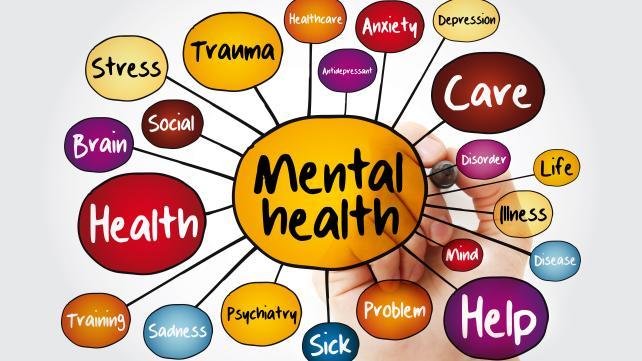
🛠️ Mental Health Support: What Actually Helps?
So, what do we do when we’re struggling? Mental health support comes in many shapes—and no, it doesn’t always mean lying on a couch in a therapist’s office (though that can be great too).
Let’s break it down.
🧠 1. Talk It Out: Therapy & Counseling
You don’t need to be “at rock bottom” to get therapy. In fact, therapy is one of the most powerful forms of mental health maintenance out there.
Popular types for your mental health:
- CBT (Cognitive Behavioral Therapy): Helps you reframe negative thoughts.
- ACT (Acceptance and Commitment Therapy): Teaches you to sit with discomfort and move forward anyway.
- Talk Therapy: Sometimes, just saying it out loud lightens the load.
Online therapy (like BetterHelp or Talkspace) has made support more accessible than ever. Therapy isn’t weak—it’s smart.
🧘 2. Daily Self-Care That Isn’t Just Bubble Baths
Self-care isn’t always luxurious—it’s necessary maintenance. Sometimes it looks like:
- Setting boundaries (saying “no” without guilt)
- Drinking water (yeah, hydration really matters)
- Moving your body (walks count!)
- Journaling for 10 minutes
- Turning off your phone an hour before bed
These small things compound. Your future self will thank you.
💤 3. Sleep, Eat, Move, Repeat
Mental wellness starts with the basics—so simple we often skip them.
🥗 Nutrition
- Complex carbs, lean protein, and omega-3s help stabilize mood.
- Gut health = brain health. Yep, your stomach has opinions too.
🛌 Sleep
- Aim for 7–9 hours.
- Create a “wind-down” routine—think: no screens, a book, dim lighting, calm vibes.
🏃♂️ Exercise
- Movement helps regulate stress hormones and boosts serotonin.
- You don’t need a gym. Just dance in your kitchen if that’s your vibe. 💃
🔌 4. Digital Detox (Even for 30 Minutes)
Let’s talk about that thing in your hand right now.
Your phone is amazing—but it also fries your nervous system if you never unplug.
Try this:
- 1 hour of no-screen time before bed
- No phone during meals
- Use Do Not Disturb mode while working
Give your brain space to breathe. Real life happens off-screen.
❤️ 5. Build Your Support System for Your Mental Health
Mental health support is not a solo mission. Find your people.
- Talk to friends who listen, not just fix
- Join a support group (online or local)
- Tell your partner or family what you need, not just how you feel
- Don’t be afraid to say: “I need help.”
You don’t have to carry it all alone. Period.
🎯 6. Set Tiny, Gentle Goals
When you’re low, brushing your teeth can feel like climbing a mountain.
So make micro-goals:
- “I’ll drink one glass of water.”
- “I’ll step outside for 5 minutes.”
- “I’ll respond to one email.”
Success builds momentum. Celebrate small wins. You’re doing better than you think.
🧘♀️ 7. Try Mindfulness—No, It’s Not Just Sitting Cross-Legged
Mindfulness is just paying attention, on purpose. That’s it.
Easy ways to start:
- 5-minute breathing exercises
- Body scans before bed
- Observing your thoughts without judging them
- Eating slowly and tasting every bite
Even 2 minutes of stillness can reset your nervous system.
🚨 When Should You Seek Help?
Listen, struggling doesn’t make you broken—it makes you human.
But there are signs it’s time to reach out for professional mental health support:
- You’re overwhelmed daily and can’t function
- You’re isolating yourself
- Panic attacks are frequent
- You’ve lost interest in everything
- You’re thinking about harming yourself
If that’s you—please talk to someone. Call a helpline. Message a friend. Book that appointment. You deserve help.
📱 Mental Health Support in the Digital Age
There are some amazing tools out there that make mental health more accessible:
- Wysa: An AI chatbot that’s surprisingly comforting
- Insight Timer: Free guided meditations
- Moodpath: Tracks how you’re feeling daily
- Notion/Journal apps: For organizing your brain
No shame in using tech to take care of yourself. It’s 2025—we use what works.
🗣️ Let’s Bust Some Mental Health Myths
| Myth | Reality |
|---|---|
| “You have nothing to be sad about.” | Emotions don’t follow logic. You can struggle even if things look “fine.” |
| “Therapy is for crazy people.” | Therapy is for anyone with a brain and a heart. Aka: everyone. |
| “I should be able to handle this alone.” | Says who? We’re wired for connection, not isolation. |
✨ Your Mental Health Routine Starter Pack
Here’s a sample daily mental health checklist to keep things practical:
✅ Drink a full glass of water when you wake up
✅ Stretch or walk for 10 minutes
✅ Spend 5 minutes unplugged and breathing
✅ Eat something that fuels you
✅ Check in: “What do I need right now?”
✅ Celebrate one small win (even brushing your teeth counts!)
🔁 Progress Is NOT Linear (And That’s Okay)
Some days will feel amazing. Others will be pure chaos.
That doesn’t mean you’ve failed. Healing isn’t a straight road. It’s a wiggly, winding, beautiful mess. You’re allowed to take detours. Just keep going.
💬 Final Thoughts: You’re Not Alone in This
If you’ve read this far—wow, thank you. That already shows strength.
You’re not too much. and dramatic.
You’re a fully human person trying to find your balance in a world that can be heavy sometimes.
So here’s your reminder:
🧠 Your mental health matters.
💬 Asking for help is brave.
💛 You deserve joy, rest, and support.
Bookmark this post. Share it with someone who needs it. And come back anytime—TheHealthyGuides is here for you.
Your brain needs fuel too—learn how the right diet can boost your mood and energy in our healthy eating guide.”
Looking for more ways to stay energised and motivated? Head over to our sports blog for inspiration and active lifestyle tips.”
